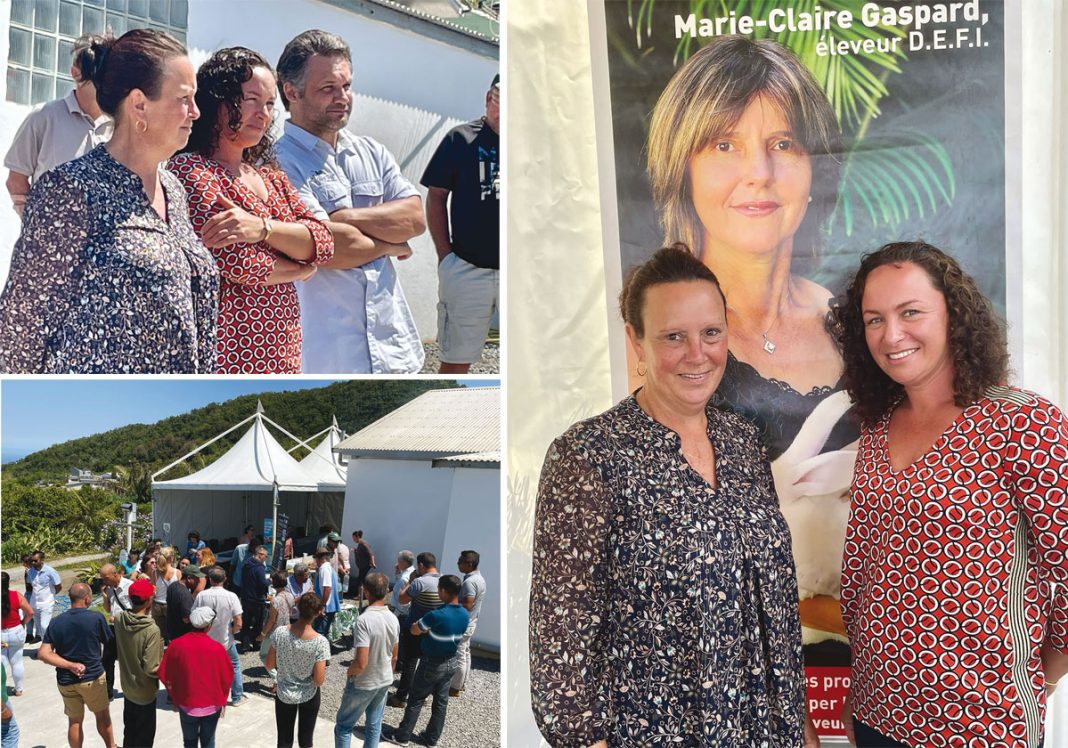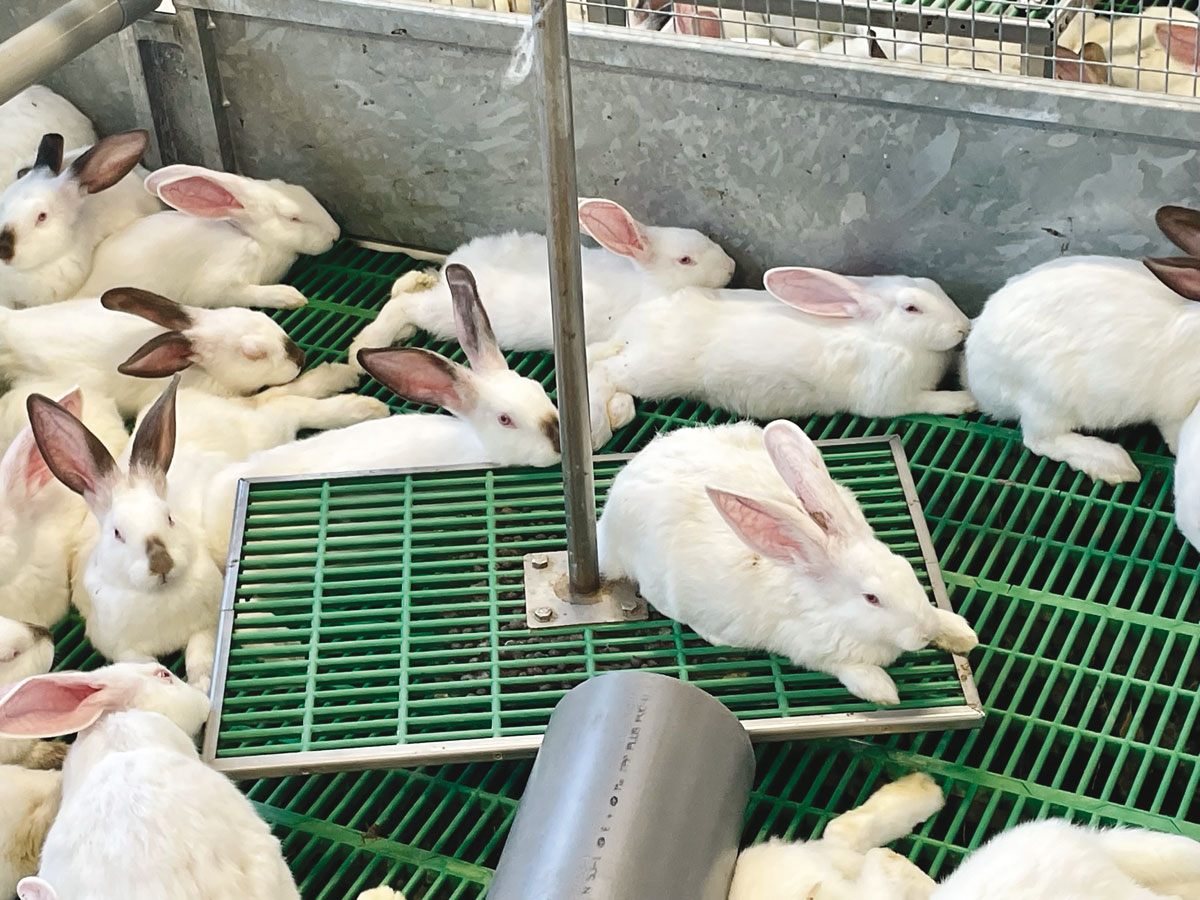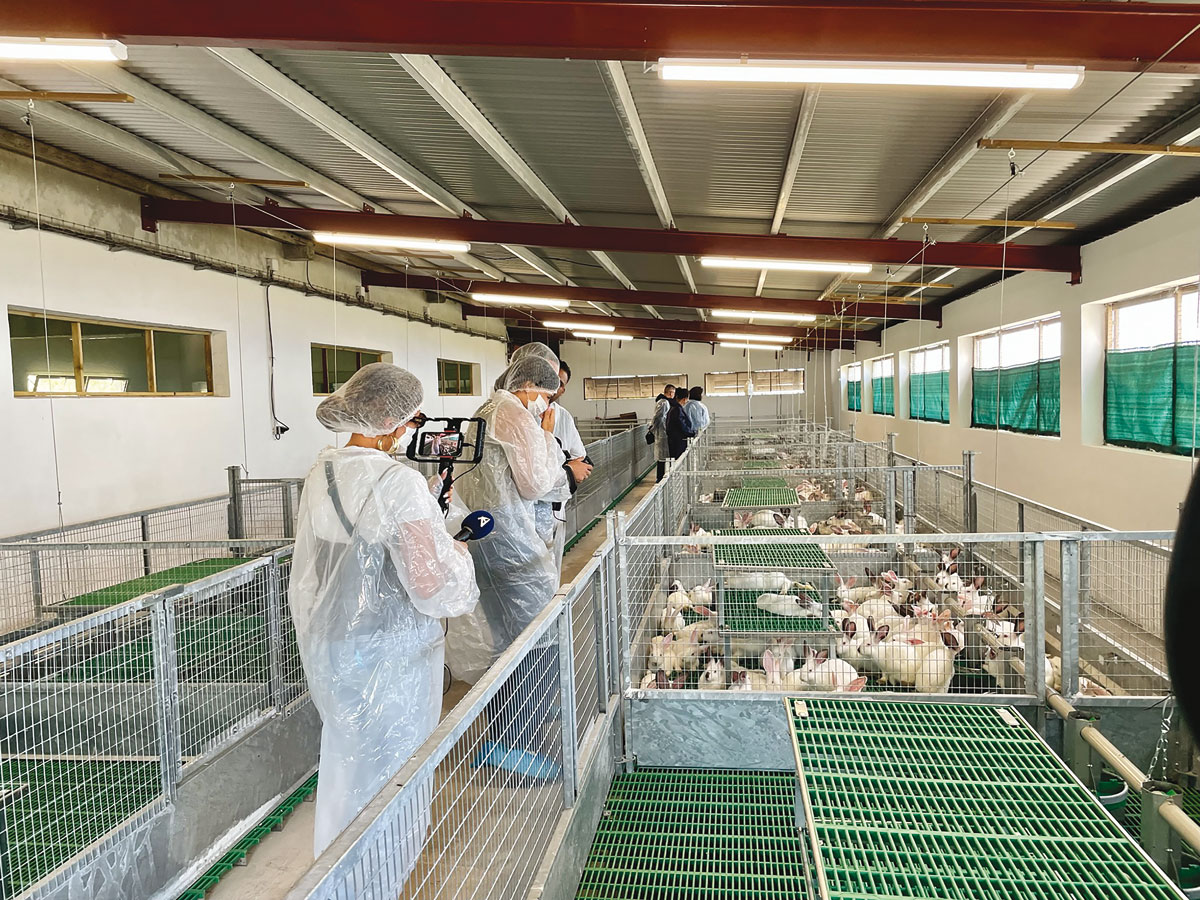The Reunion Rabbit Producers Cooperative (CPLR) inaugurated on October 8, as part of the BEATRIX project, in Saint-Joseph a second experimental breeding in a park on a farm located in Plaine des Grègues. All of the cooperative's institutional and financial partners were invited to discover this innovative breeding model..
After Sainte-Rose, a year and a half ago, Ms. Naze's farm is the second on the island to adopt this new, still experimental method of breeding.. The new parks of 2×3 meters offer rabbits greater freedom of movement than in cages. The surface area provided per animal increases the possibility of exercise tenfold, particularly with the addition of a mezzanine. “This model not only changes the lives of rabbits, but also our working conditions”, testifies the rabbit breeder who started her activity in 2010. The BEATRIX project (animal welfare transition recovery innovation experimentation), supported by European funds, nationals and Odeadom with the participation of the ARIBEV inter-professional association, anticipates the 2021 European directive, which aims to phase out cage farming by 2027-2030. “Only 2% of farms in mainland France have adopted this type of structure, placing this initiative at the forefront of progress for animal welfare in the overseas departments”, highlighted Candice Beyssac, deputy general secretary of ARIBEV, by congratulating Marie-Annie Naze “for her exemplary approach that holds the future for all breeders. »
A successful first phase in Sainte-Rose
The first phase of this project, launched on the operation of EARL Ferrère in Sainte-Rose, made it possible to test this floor farming model for the first time in Overseas France. After some adaptations, experience has demonstrated the viability of this substitute for cage farming. For this second site, additional changes have been made. “We have to meet very strict specifications, which required significant adaptation work”, underlines Jimmy Payet, director of the CPLR. “We had to design a cover adapted to the climatic conditions of our territory and also protect the large openings provided for animal welfare by creating anticyclonic shutters to shelter the rabbits from bad weather. »
Encourage new vocations
This project also meets the expectations of Reunion consumers, keen to consume local, quality products. “Rabbit meat is very popular locally, but current production is not enough to satisfy all demand”, explains Clémentine Hubert, breeder and president of the CPLR. “This new breeding model, even more respectful of animal welfare, should allow us to increase our production while attracting new breeders to this rapidly changing sector. » The CPLR is currently preparing ten candidates for the creation of their farm over the next three years. This year it was awarded the Agri-Éthique fair trade label., which values the efforts of actors engaged in sustainable and ethical agriculture. In this dynamic, the cooperative will continue the experiment carried out in these two park farms over the coming months, in order to make this model accessible and sustainable for all breeders in the future. The CPLR brings together 14 member farms spread across the island, Who, in their entirety, have 49% market share in Reunion Island.














